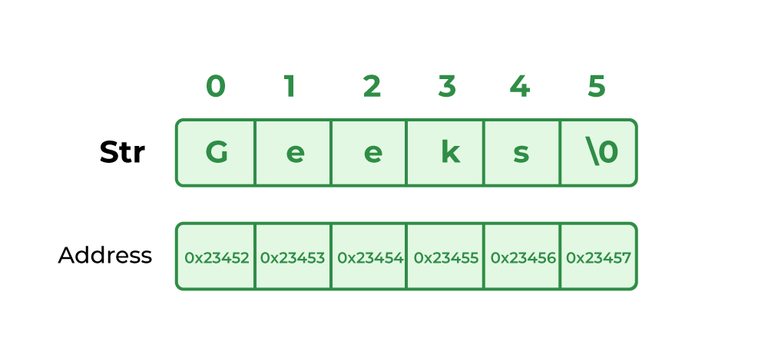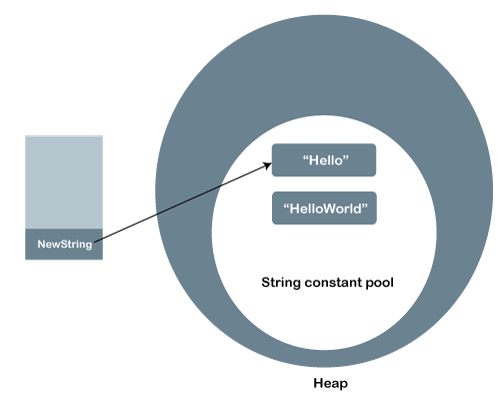Why Are Strings Immutable in Java? Insights right into Memory Efficiency
What Is Immutable Strings and Just How It Functions
In the world of programs, comprehending the principle of immutable strings is paramount for producing robust and safe applications. Unalterable strings refer to strings that can not be changed after they are developed, ensuring information stability and predictability within the code. This fundamental concept plays an essential role in various shows languages and uses an unique approach to handling information. By checking out the ins and outs of exactly how unalterable strings operate, one can uncover a globe of benefits and opportunities that can boost the high quality and efficiency of software program development.
The Fundamentals of Unalterable Strings
Immutable strings, as a basic idea in programming, are character sequences that can not be changed when they are developed. This suggests that when a string is assigned a value, that worth can not be changed. In languages like Python and Java, strings are immutable items, causing different implications in regards to memory management and data stability.
Among the key benefits of immutable strings is that they provide a complacency in information control. Since the web content of an immutable string can not be changed, it makes sure that the initial data continues to be undamaged, decreasing the threat of unintentional modifications throughout program implementation (Why are strings immutable in Java?). This building likewise streamlines debugging processes, as designers can rely on that as soon as a string is specified, its worth will certainly not be accidentally altered
When a new string is produced based on an existing one, rather than modifying the original string, the brand-new worth is stored separately. Generally, recognizing the essentials of unalterable strings is essential for mastering programming ideas and enhancing code performance.
Benefits of Immutable Strings
Building upon the safety and effectiveness benefits of immutable strings, their advantages include improving code integrity and streamlining concurrent programming jobs. By being immutable, strings can not be changed after production, which gets rid of the danger of unexpected modifications in the information they keep. This integral immutability ensures that as soon as a string is developed, its worth continues to be continuous throughout the program's implementation, lowering the opportunities of pests triggered by unexpected alterations.
In addition, unalterable strings add to code dependability by making it less complicated to reason regarding the state of a program. Because strings can not be transformed, designers can trust that a string will constantly hold the same worth, simplifying debugging and upkeep initiatives. This predictability brings about a lot more reliable and secure codebases.

Implementation in Programming Languages
Within different shows languages, the unification of unalterable strings is more tips here an essential aspect that affects how information is dealt with and adjusted within code structures. The implementation of immutable strings differs throughout various programming languages, with each language offering its own systems to support this concept.

In contrast, languages like C and C++ do not have integrated support for unalterable strings. Developers in these languages need to manually carry out immutability by imposing regulations within their code to stop straight alterations to string things.
Best Practices for Dealing With Immutable Strings
When taking care of immutable strings in programs languages like Java and Python, sticking to ideal practices ensures reliable and secure data manipulation. Among the crucial ideal practices is to use StringBuilder or StringBuffer rather than directly controling strings, especially when handling substantial concatenation operations. These classes give mutable alternatives for string manipulation, helping to prevent unneeded memory allowances and improving efficiency.
Furthermore, when functioning with sensitive data such as passwords or API keys, it is vital to stay clear of keeping them as simple message in unalterable strings. Utilizing secure storage mechanisms like char ranges or specialized libraries for handling delicate info aids reduce safety and security risks associated with unalterable strings.
Real-world Applications and Examples
Exploring practical implementations of unalterable strings in different markets reveals their significant effect on data honesty and system integrity. In the healthcare market, unalterable strings play an essential role in making sure the safety and privacy of person information. By protecting against unauthorized modifications to delicate information such as clinical records and prescriptions, unalterable strings assist maintain compliance with rigorous privacy regulations like Visit Your URL HIPAA.
Economic organizations likewise take advantage of the immutable nature of strings to enhance the protection of client information and deal documents. Unalterable strings help protect against fraud and unauthorized modifications to monetary details, providing a durable defense against cyber threats and ensuring the count on and confidence of clients.

Final Thought
Finest techniques for functioning with unalterable strings consist of preventing direct alterations and utilizing techniques that return new string objects. Real-world applications of immutable strings include data security, caching, and string adjustment jobs.
Unalterable strings refer to strings that can not be modified after they are created, making sure information stability and predictability within the code. When a brand-new string is developed based on an existing one, instead than customizing the initial string, the brand-new worth is stored independently.In languages like Java and Python, strings are unalterable by default, meaning that once a string things is developed, its worth can not be changed - Why are strings immutable in Java?. Ideal practices for working with unalterable strings consist of avoiding direct modifications and utilizing techniques that return new string objects. Real-world applications of unalterable strings consist of data encryption, caching, and string manipulation jobs